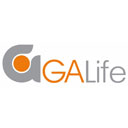Blog / Group
Insurance and Millenials
The first time I heard about insurance was at a young age, after my dad used his military insurance cover (KDF) to pay for my spectacles, after an early age prognosis. I remember they costed around 14,000 shillings, then. I was amused by the fact that somebody else was paying for my bill but then […]

The first time I heard about insurance was at a young age, after my dad used his military insurance cover (KDF) to pay for my spectacles, after an early age prognosis. I remember they costed around 14,000 shillings, then. I was amused by the fact that somebody else was paying for my bill but then that was it. Anyway, I was covered throughout primary and high school years until towards the end of campus, when he retired. Interestingly, around this time, my spectacles were up for replacement and due to very painful migraines, I needed them changed ASAP. My campus graduation party was also happening 3 counties away in 2 days, so I needed to travel to get ready. All this time, around 1 year after my dad retired and 4 months after clearing campus, I hadn’t still thought of getting an insurance cover. So being unemployed, my elder brother covered the bill and I moved on with life. I still didn’t get an insurance cover. I wasn’t even aware of my options.
Ironically, 6 months later, I started working with an Insurance company. I remember when I was called for the interview, I literally had to GOOGLE and research about Insurance in general, because all I knew was the little theoretical knowledge I had acquired from some few topics in CPA and BCOM courses. Luckily, my entry level job was the beginning of a journey of understanding insurance in depth and the whole company, in general.
Now, I can confidently say that I know and understand Insurance and its significance. I even have a few covers but thank God, GA offers free medical cover for employees ![]()
Low Penetration of Insurance in Kenya
Low Insurance penetration in Kenya and what needs to be done to improve the sector has been a common topic and despite the efforts by the State to increase the penetration, the position has not improved. In March 2018, while making a presentation on how the International Financial Reporting Standards (IFRS 17) was going to affect the insurance industry, Alex Mbai, a partner from KPMG said, “There are 50 insurance companies in Kenya. That means there is one insurance company for every one million people. Yet penetration has remained at a meagre three per cent for years.” And out of the 3%, it is almost sad to imagine the percentage of the millennials that add up to the 3%.
Insurance penetration is usually calculated as a percentage of premiums to a country’s GDP. It is measured as the ratio of premium underwritten in a particular year to the GDP. IRA has attributed the low penetration on the high nominal growth in Gross Domestic Product (GDP) compared to the nominal growth in gross direct premium. According to an IRA report, “The biggest challenge to penetration remains lack of awareness among Kenyans. It is difficult to compete with countries such as South Africa which has a penetration of 13 per cent.” IRA has often been blamed for not doing enough in sensitizing Kenyans on the need for insurance but research also shows that the insurance companies have not invested enough in awareness campaigns. Well, it is fair to say that they have tried but still, it hasn’t been enough. Many companies still prefer to focus their efforts on the corporates and individuals with high purchasing income, largely leaving other Kenyans out.
Low Penetration of Insurance Among Millennials
As the talks on low penetration of Insurance among Kenyans continue, there is a largely untapped market which is the social economic group called millennials. Some are completely unaware of insurance options, other than motor insurance. The other day I asked my friend, a millennial and small business owner, what she thought about concerning the current low insurance penetration in Kenya and the reasons for it. And all she did was give me a blank face. Then followed with, “Is it illegal not to have insurance? I know some of my formally employed friends have NHIF which is mandatory.” Then I asked, “do you even know any other insurance covers, apart from medical?” She shrugged and said, “I honestly don’t know anything about insurance, other than the names of the common Insurance companies.” Then she added, “Maybe motor, because it’s mandatory for everyone but it’s still not applicable to me because I don’t have a car yet.”
The low Penetration of Insurance among millennials in Kenya resonates with previous research findings done in South Africa and other African countries. This gap has resulted to a great opportunity for insurers and intermediaries who get that the expectations and characteristics of this socio-economic group are greatly different from other customers.
Millennials, as a socio-economic group are growing in power, not to mention their investment potential. They are reshaping their work environments and influencing advertising and marketing strategies and it is high time that Insurance companies learn to work with millennials and bring them on board, especially once they clear campus. This requires a change in how they also communicate.
Who are Millennials?
Millennials are young adults who were born approximately, between 1980 and 2000. They roughly range from 18 years to 37 years. According to data from US-based Population Reference Bureau (PRB), Kenyan millennials add up to 10.1 million out of Kenya’s population of 49.7 million.
Myths and misconceptions
Probably, millennials are the most misunderstood group, the common misconception being that they do not care about ‘serious issues’ such as, civic engagement, political participation and public affairs. This has been largely attributed to their ‘short attention span’. However, according to a study done by the Africa Barometer where the respondents were aged between 17-35 years in 7 African countries, millennials were strongly interested in politics, public affairs and civic engagement. In 2017, a poll by GeoPoll done in 5 countries in Africa confirmed the same. And they were voicing their concerns and engaging other things that matter to them through social media e.g. #SomeoneTellCNN #BringBackOurGirls. According to an insurance survey by PriceWaterhouseCoopers, the insurance industry is being reshaped by millennials, both as consumers and employees due to their preferences and attitudes.
How insurers need to adapt, a different outlook
The Internet is a powerful enabler of consumer education and sales. Technological developments have greatly influenced the buying preferences and behaviors of millennials, with many using the internet as a source of information or company reviews (usually from friends), before making a purchase.
Like their global counterparts, Kenyan millennials are increasingly using social media sites as tools for communication and a source of news and information. Social network platforms such as Facebook, WhatsApp and Twitter have become an integral part of everyday life. According to Geopoll, 60% of millennials in Kenya get their information from social media, 30% from TV and the rest, from radio and papers. Millennials are also shopping online and those shopping for insurance aren’t just shopping for insurance online, they are buying there too. A 2014 Geopoll poll found that millennials are twice as likely to buy their policies online instead of dealing with a local agent.
To tap into the millennial market, insurance agents and brokers need to inform, educate engage and interact with them online, even before they need insurance in order to build awareness and trust. This will eventually lead to sales, in the long run.
While millennials may want to hear all the available options, they want quick services. This means that intermediaries need to embrace technology so as to compete with this speedy direct insurance market. Millennials are also more comfortable with dealing with somebody over the phone, as opposed to the baby boomer generation, which prefers a face to face or a personal meeting. Therefore, it is important that insurance companies stay abreast of trends in technology and demonstrate innovation capacity. Continuous interaction via online platforms ensures that insurance companies build trust among millennials and that their expectations are met.
Article by Nelly Tuluba
Image https://www.freepik.com/


